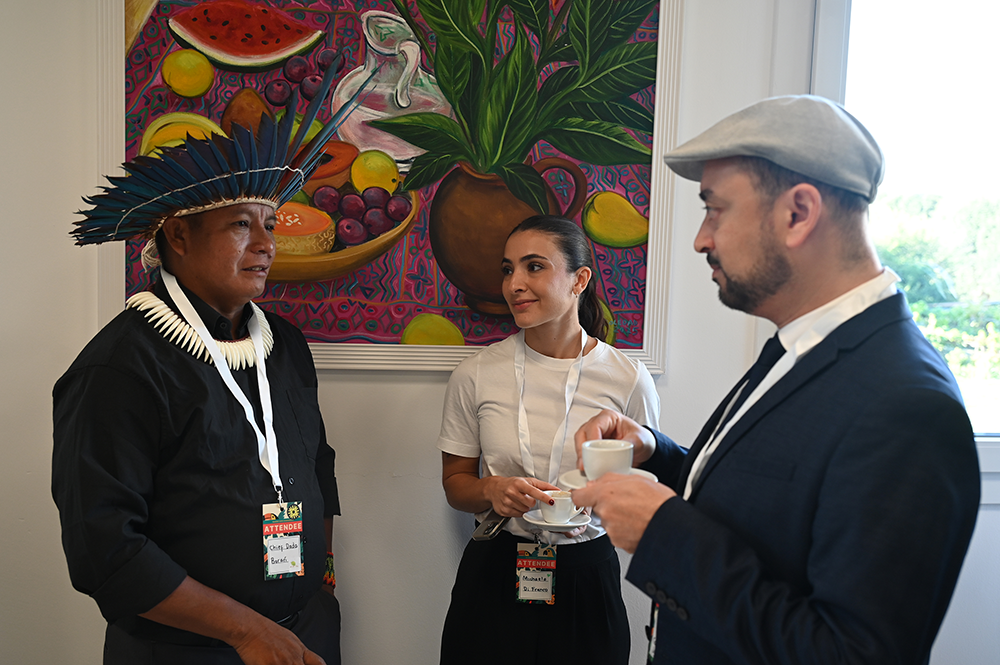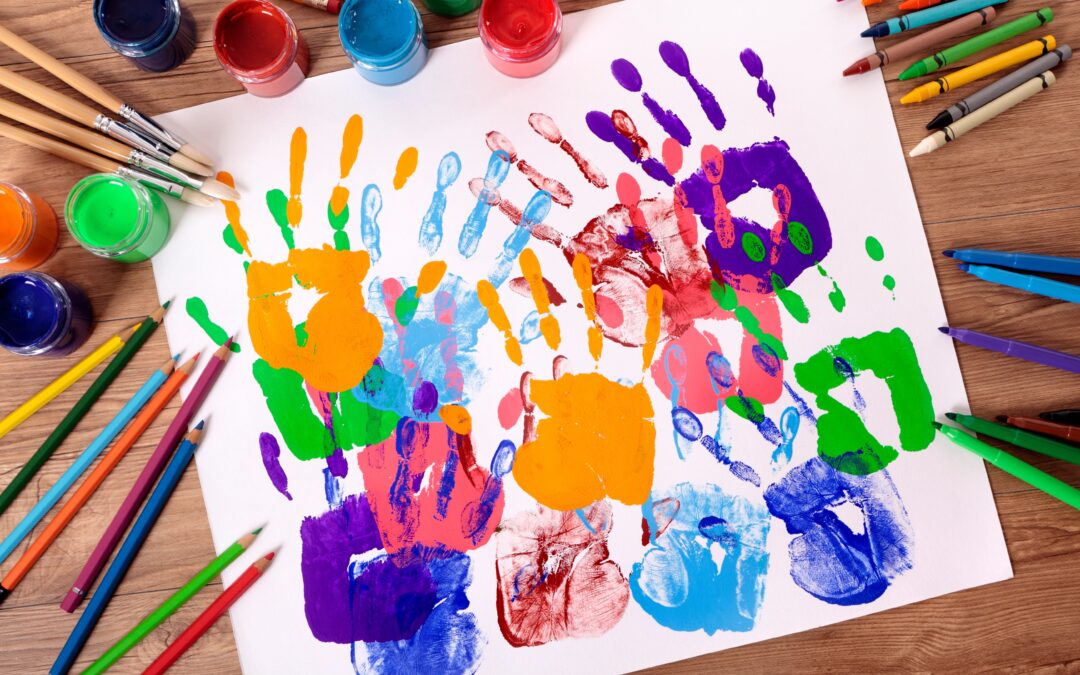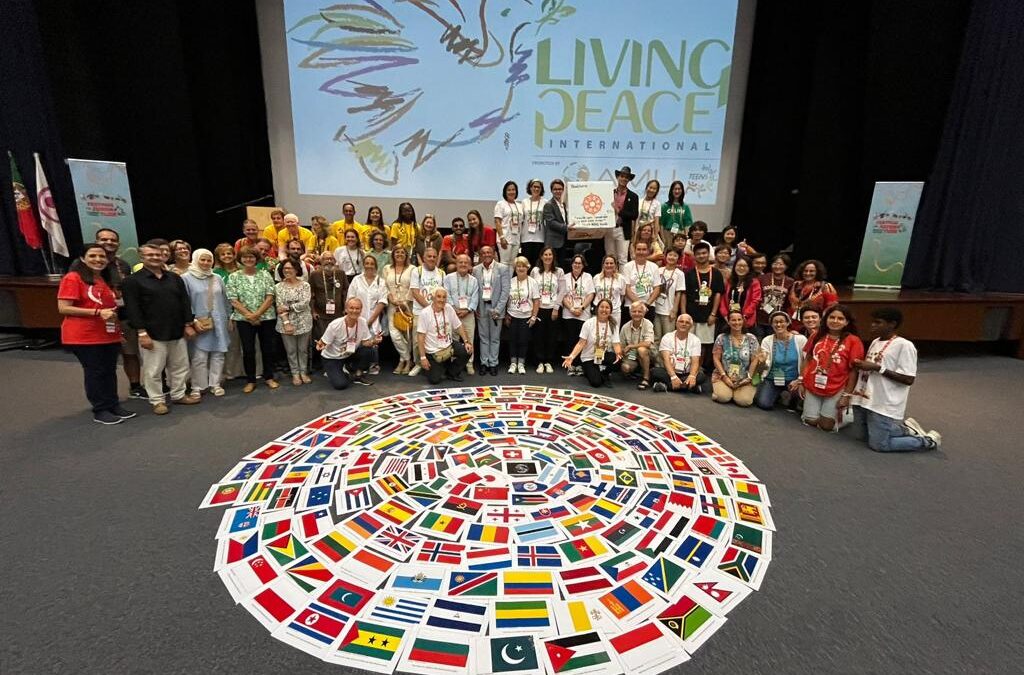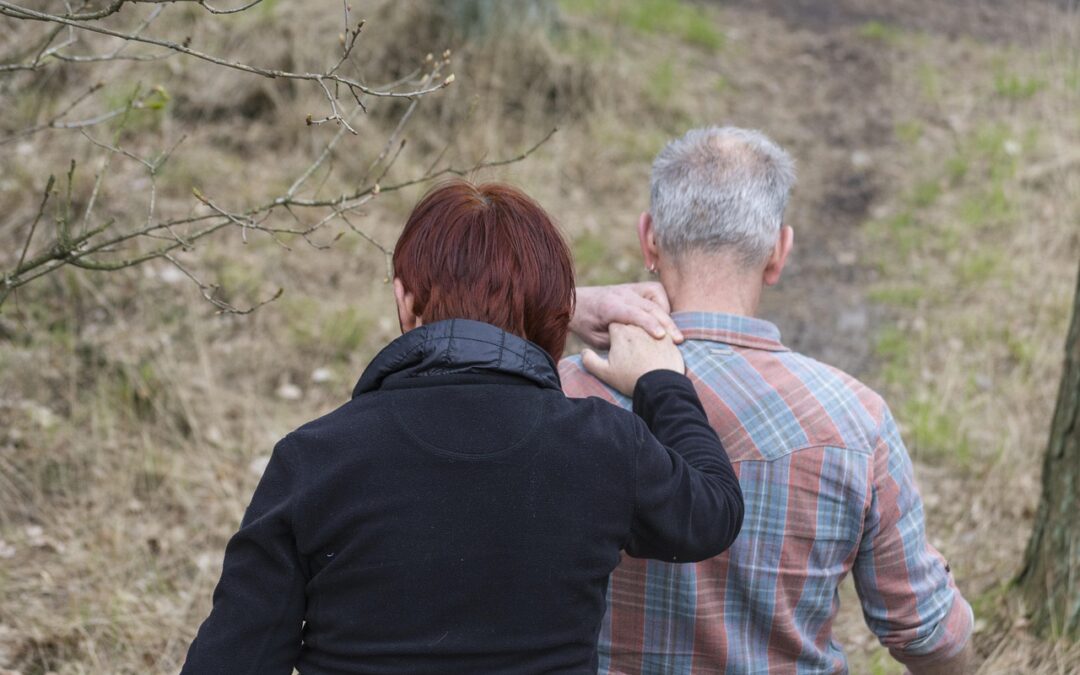
1 Feb 2026 | Idea of the Month
Since ancient times, men and women have nurtured the desire to know what the future will bring and have used magical rituals or the interpretation of natural signs in order to do so. Great works produced by different cultures and religions in the past reveal this need. It often arises during periods of great suffering for a people or nation.
But is it really useful to know what will happen? What do we gain by knowing in advance what we will experience or how we will cope? None of the legendary traditions reveal this completely, and more often than not, symbolism hides the very concrete search for and expectation of a better tomorrow that gives meaning to today’s suffering.
We could say that we are not concerned about the future when things are going well, however, when they are going badly, we are sustained and encouraged by the hope that tomorrow will be better. It is then that many of us feel a deep need to await a new, different world, not only for ourselves but for everyone.
Today’s world expresses a “cry” that emerges from all of humanity. Even if we are not directly affected, we only need to watch the news or leaf through the newspapers to become aware of tragedies of all kinds. How do we react? Are we so accustomed to this negativity that we are immune and simply try to survive or, on the contrary, do we think deeply about the future and act accordingly?
The world we imagine and desire certainly does not yet exist but, as George Orwell reminded us, it is possible that it will be. But what does this mean? What can we do? We find an answer in the thoughts of Albert Camus: “True generosity towards the future consists in giving everything to the present.” [1]
The future, therefore, is not just something to await but can be prepared and, in a sense, anticipated even now. It depends on our attitude and our daily actions. We do not know when we will see the fruit of change: it is like a silent seed that grows without us noticing and, over time, becomes a plant capable of nourishing, protecting and generating life around it.
We cannot imagine the consequences but they will certainly be new and creative. The future is unpredictable but it will develop according to relationships that have been transformed, feelings shared and solidarity that has become action.
We need courage to be a driving force for change and renewal in society; we need to allow ourselves to be challenged by people who suffer, who are aloneor need our help or advice. Even though we will encounter difficulties and inner struggles, there will also be moments of joy and real fulfillment.
Recently, an event was held in Florence to raise awareness and involve participants in a network of fraternity. There were opportunities to reflect and share experiences on how to build a future of peace in various areas such as economics, trade unions, industrial reconversion and ecology. This is an initiative that we want to spread rapidly to other cities and countries.
Take courage! We are builders and not spectators and our goal is to create a future of fraternity, harmony and peace.
[1] (L’Hommerévolté, 1951).
Foto © Thophilong-Pixabay

1 Jan 2026 | Idea of the Month
The world today lacks unity. To give just a few examples, we see this in the divisions that sometimes exist within families, among neighbours and between Churches and communities. It seems that polarisation prevails over understanding. This is a consequence of the growth of individualism that drives people to decide and act on their own behalf in a way that benefits their interests and personal prestige. This gives little value to the needs and rights of others.
And yet, it is possible to experience unity. It is a journey that always begins by taking small steps and with a “yes” that we say within: yes to welcoming, yes to forgiving, yes to living for others. It is not about grand projects but about small but faithful actions that, over time, transform a life, a community or an entire environment. And when that happens, we realise that fraternity ceases to be an ideal and becomes a visible reality and hope for all.
Martin Buber considers unity to be relationship. He states that it is the space of encounter, that exists between You and I, a sacred place where differences do not disappear but are mutually recognised. For him, unity arises when two realities allow themselves to be touched and shaped by the other and not when one imposes itself. This “between” can be understood as a space that welcomes diversity and, precisely for this reason, becomes a source of communion. Hence, for Buber, “All true life is encounter” (Ich und Du, 1923).
Therefore, in other people – whether friends, family members or just someone we meet along the way – we can discover the great ‘opportunity of relationship’. Other people ‘save us’ and enable us to go beyond our fears when we feel overwhelmed by a difficult situation.
Living for unity means walking together despite our differences, transforming them into treasures rather than obstacles. It is an invitation to move from simple coexistence to encounter, where reciprocity enables what belongs to each person to become new because the relationship means it is shared. Unity, understood in this way, is not the sum of the two nor is it fragility that causes us to lean on others: it is strength that generates the hope that there is still a tomorrow. Diversity is no longer disunity, but mutual richness. It is feeling that what happens to others also resonates in me. ‘Union does not consist in equality, but in harmony,’ Rabindranath Tagore reminds us.
This month, may we experience the joy, light, life, peace and hope that come from unity that is lived
If we are one, we see things differently.
Photo: © JGC-CSC Audiovisivi
THE IDEA OF THE MONTH is currently produced by the Focolare Movement’s “Centre for Dialogue with People of Non religious Beliefs”. It is an initiative that began in 2014 in Uruguay to share with non-believing friends the values of the Word of Life, i.e. the phrase from Scripture that members of the Movement strive to put into practice in their daily lives. Currently, THE IDEA OF THE MONTH is translated into 12 languages and distributed in more than 25 countries, with adaptations of the text according to different cultural sensitivities. dialogue4unity.focolare.org

1 Dec 2025 | Idea of the Month
At the moment, weare experiencing challenges on a global scale. The news of tragic situations affecting our planet conspires to take our breath away and leaves us living under a very dark cloud that blocks our view of a brighter horizon. Hope seems like a fragile commodity, almost a mirage. Itis natural to ask if we can still “hope” for a better future for humanity, or are we doomed to simply resign outselves to the situatation?
In the current circumstances, the thoughts of the German philosopher, Ernst Bloch (1885-1977), may be helpful. He said, “Hope is not a passive illusion but a ‘forward dream’, an active principle that anticipates what is not yet given. It is linked to the idea that the future is not predetermined but is open and flexible.” [1].
This is how each of us “can still hope”, how we can day dream whilst keeping our eyes open. If we look carefully, we may glimpse sight of a new dawn which is gradually awakening. This is already at work in so many different ways: it can be seen in the commitment of a teacher, the honesty of a business man or woman, the integrity of an administrator, the fidelity of a married couple, the embrace of a child, the tenderness of a nurse, the patience of a grandmother, the courage of those who peacefully oppose crime and the welcome offered by a community.
The example of children who have found safety and protection in certain facililities situated in war torn areas speaks even more powerfully of hope. This is evident in the drawings of the young people who have followed the “Save the Children” psychosocial programmes. Their colourful pictures illustrate their hopes of becoming doctors, writers or fashion designers. These safe environments provide a space where they can play, freely express themselves and imagine a future beyond conflict. Their drawings were first shown to the public on World Mental Health Day, 10 October 2025, and testify to the resilience of children in the face of war. [2].
Last but not least, we find hope in millions of people around the world: children, young people, adults and the elderly who, afflicted by serious illnesses, face the challenges that “life” has given them with strength, tenacity and resilience and try to overcome the obstacles they encounter. Such people show incredible courage and their example shows great love for life.
These small, everyday signs remind us that hope is not an illusion, but a real force, the fruit of love that spreads and is capable of transforming society step by step.
Everyone thirsts for hope, both those who are close to us and those who are far away (physically, existentially or culturally). The idea this month invites us not to remain inactive but to take the initiative in bringing hope to those who need it and see no meaning in life. Let us take notice and draw close to them by loving generously and sensitively. There are many who await this and we are called to reach out to them all. As the Congolese poet, Henri Boukoulou, writes, ‘O divine hope! Behold the desperate cry of the wind wherein the first lines of the most beautiful love poem are etched. And tomorrow, there is hope!’ [3].
Photo: © byFreepik.com
[1]Ernst Bloch (1885-1977), Das Prinzip Hoffnung (1954-1959)-“Il principio speranza” (ed. italiana)
[2]https://www.cittanuova.it/multimedia/i-sogni-dei-bambini-di-gaza-tra-guerra-e-colori
[3]Cf. AA.VV. Poeti Africani Anti-Apartheid, I vol., Edizioni dell’Arco, Milano, 2003.
THE IDEA OF THE MONTH is currently produced by the Focolare Movement’s “Centre for Dialogue with People of Non religious Beliefs”. It is an initiative that began in 2014 in Uruguay to share with non-believing friends the values of the Word of Life, i.e. the phrase from Scripture that members of the Movement strive to put into practice in their daily lives. Currently, THE IDEA OF THE MONTH is translated into 12 languages and distributed in more than 25 countries, with adaptations of the text according to different cultural sensitivities. www. dialogue4unity.focolare.org

1 Nov 2025 | Idea of the Month
We live in a time when tensions, conflicts, and messages of hatred seem to be multiplying everywhere: on social media, at work, in politics and even within families. Globally, armed conflicts are reaching levels unseen in decades. This situation reminds us that peace is never guaranteed but must be cultivated daily.
In the light of this, Chiara Lubich’s words from 2004 are still very relevant today: “Every nation and every person has a deep longing for peace, harmony and unity. But despite our efforts
and goodwill, after thousands of years of history, we find ourselves unable to maintain stable, lasting peace (…) because peace is not only the absence of war, struggles, divisions, and traumas.” True peace is “fullness of life and joy; it is the integral salvation of the person; it is freedom; it is justice and fraternity in love among all peoples.”
Working for peace requires taking action and initiative, sometimes creatively. Each of us has the potential to become a “peacemaker” by promoting harmony and collaboration in the small things of everyday life and by joining global initiatives that foster cooperation.
Some concrete examples are significant.
The Living Peace project began with a personal desire to promote peace and then evolved into an extensive peace education programme. Currently, over 2,600 schools adhere to this project and two million children, young peopleand adults from five continents are involved in its the initiatives . Among these is the “peace dice,” which has phrases written on each face that help build peaceful relationships and that everyone tries to put into practice.
Recently, in a webinar entitled “Forgiveness and Peace: the Courage to Make DifficultDecisions,” the importance of forgiveness and reconciliation in being peacemakers and rebuilding what had been broken was highlighted.
Finally, another example is the Rondine Method: an open-air workshop that enables people to move beyond the resoning that regards others as the enemy. Israelis and Palestinians, Serbs and Bosnians, Armenians and Azerbaijanis but also Malians, Nigerians, and Colombians, and most recently Russians and Ukrainians, have built a viable way to repair relationships destroyed by hatred and build solid bonds in favour of peace. Over the last thirty years, many young people have visited “Citadel Peace”, a small medieval village on the outskirts of Arezzo. Some of these people are now politicians, ambassadors, business men or women and young leaders who are dedicating their lives to healing the wounds of those painful conflicts and laying the foundations for a future that combines peaceful relations and development.
To live this idea, let us resolve to sow seeds of peace wherever we are by ceating relationships of trust, solidarity, and cooperation, because every step toward peace makes us more fully human and brings the whole of society closer to a future of justice and fraternity.
Photo: © Livingpeaceinternational.org
THE IDEA OF THE MONTH is currently produced by the Focolare Movement’s “Centre for Dialogue with People of Non religious Beliefs”. It is an initiative that began in 2014 in Uruguay to share with non-believing friends the values of the Word of Life, i.e. the phrase from Scripture that members of the Movement strive to put into practice in their daily lives. Currently, THE IDEA OF THE MONTH is translated into 12 languages and distributed in more than 25 countries, with adaptations of the text according to different cultural sensitivities. www. dialogue4unity.focolare.org

1 Oct 2025 | Idea of the Month, Non categorizzato
Who, at one point or another during their life time, has not felt that they simply could not cope?
These are times of confusion and great vulnerability when we become aware of our own limitations and it seems clear that we cannot face all of life’s challenges alone.
When we feel like this, we need to lift our gaze, shift our focus away from our difficulties and open up to a broader reality. By making this subtle yet decisive change from within, we become aware of an invisible “web”. This is like a delicate fabric of intertwining people, experiences, and circumstances that envelop, accompany, sustain and fill us with understanding.
This help does not always manifest explicitly; it comes from life itself with its mysterious ability to regenerate, heal, and set us on our way once again. This happens not through spectacular events but through discreet actions that are filled with human and symbolic meaning. They may be a silent presence in times of mourning, healing hands, an attentive gaze, a kind word, an unexpected phone call that breaks into our isolation or a gesture of trust when self-esteem falters.
How many people around us have believed in us before we ourselves had the courage to do so? And how often did we find the strength to resume our journey thanks to the faith and trust we have encountered?
Even our inner self that is so often worn down by doubt, despondency or fatigue can be renewed thanks to a meaningful encounter or a gratuitous gesture that makes us feel welcomed, recognized, and loved.
Then, driven by deep and sincere gratitude, we want to reciprocate and tell others about our transformative experience. And so, what we have received becomes a gift and, in a very humble way, we can become a gift for others.
Photo: ©Marcin Chilli Minio – Unsplash
THE IDEA OF THE MONTH is currently produced by the Focolare Movement’s “Centre for Dialogue with People of Non religious Beliefs”. It is an initiative that began in 2014 in Uruguay to share with non-believing friends the values of the Word of Life, i.e. the phrase from Scripture that members of the Movement strive to put into practice in their daily lives. Currently, THE IDEA OF THE MONTH is translated into 12 languages and distributed in more than 25 countries, with adaptations of the text according to different cultural sensitivities. www. dialogue4unity.focolare.org

1 Sep 2025 | Idea of the Month
A teacher recounts, “A group of pupils often tended to skip lessons. When I was free, I used to go to the market near the school hoping to see them because I had heard that several of them worked there to earn money. One day, I finally found them: they were amazed that I, personally, had gone looking for them. They were really struck by what I had done and this helped them understand how important they were to the whole school community. They began attending school regularly and this brought a sense of joy to everyone.”
This experience expresses the inalienable value of every human being. It speaks to us of unconditional acceptance, of never ceasing to hope and of the joy that everyone experiences when someone is reintegrated into a community because this restores their dignity and acknowledges their unique value as a person.
There are times when we cannot all “walk” through life at the same pace. Our own frailty, or that of others, may prevent us from always moving forward along side those who accompany us. On our journey. There are many different reasons why this may happen such as tiredness, confusion or suffering… But it is precisely in these moments that a profoundly human and radically communitarian form of love can emerge: this love is attentive to other people and knows how to stop and look towards those who can no longer keep up. It is seen in behaviour that demonstrates closeness and faithfulness. It protects, gathers up and accompanies just as a parent does with their child. It is patient, understanding, respectful and trusting. It is seen in the way we carry each other’s burdens, not as a duty, but on account of our freely committing to a love that seeks to maintain unity in the community, family and society even if this means moving slowly.
This type of love – the kind that cares, that seeks, that includes other people – makes no distinction between good and bad or between “worthy” and “unworthy.” It reminds us that at some point in our lives, we may all find ourselves “lost “and that the collective joy of being “found”again is stronger than any judgment or separation.
This Idea is an invitation to see the other person not for what he or she has done, but for the fact that they are unique and worthy of being loved. It invites us to make an ethical choice to care, to avoid leaving anyone behind or abandoned and to restore bonds wherever they are broken. It also encourages us to celebrate all our efforts to increase the presence of human values wherever we are.
Martin Buber, a Jewish philosopher, regarded deep relationships as a source of truth, and said that authenticity is not found in what we do alone, but in the respectful and gratuitous encounter with other people.
Photo: © Sabine van Erp en Pixabay
——————————–
THE IDEA OF THE MONTH is currently produced by the Focolare Movement’s “Centre for Dialogue with People of Non religious Beliefs”. It is an initiative that began in 2014 in Uruguay to share with non-believing friends the values of the Word of Life, i.e. the phrase from Scripture that members of the Movement strive to put into practice in their daily lives. Currently, THE IDEA OF THE MONTH is translated into 12 languages and distributed in more than 25 countries, with adaptations of the text according to different cultural sensitivities. www. dialogue4unity.focolare.org






